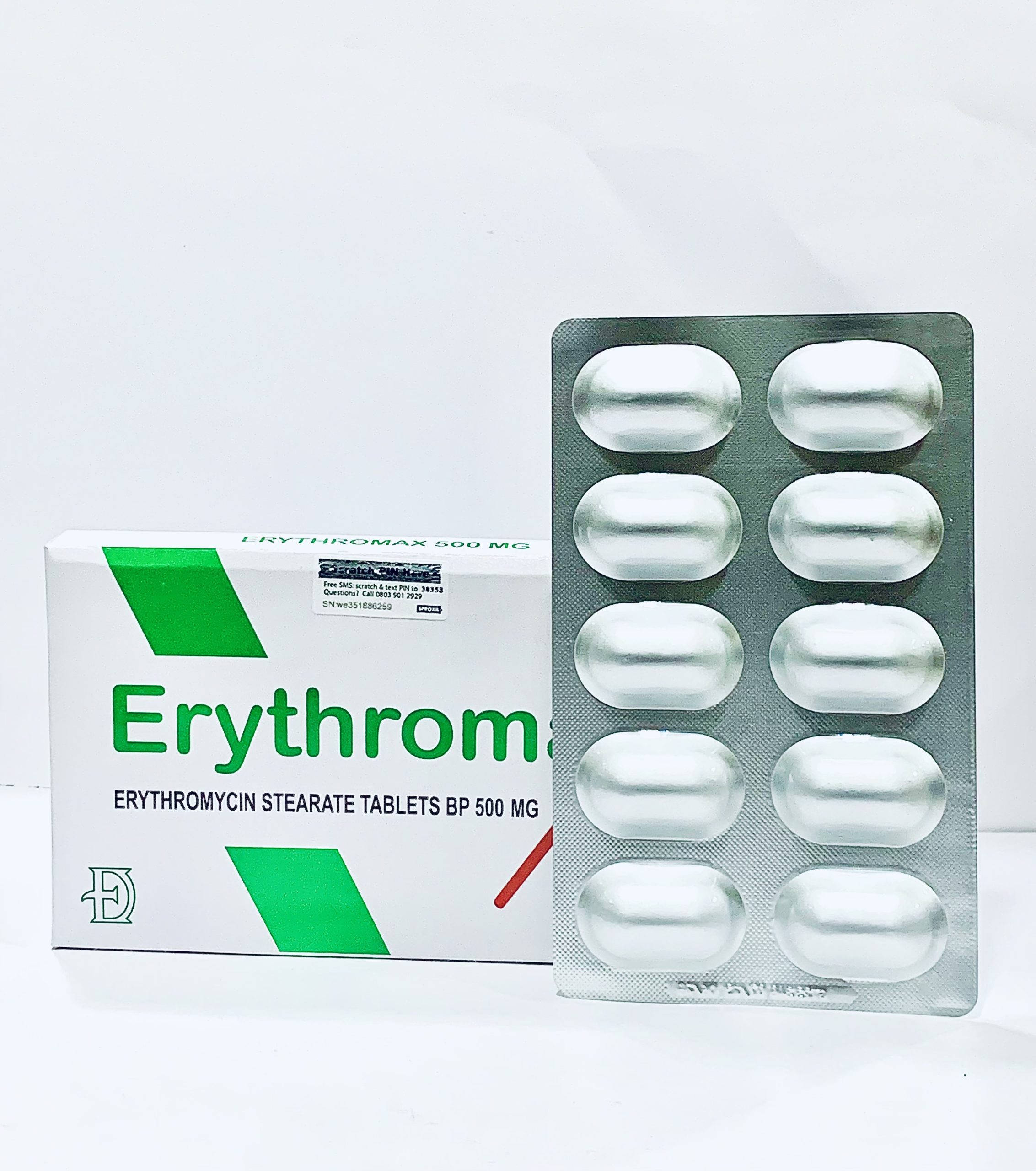Description
Erythromycin: A Time-Tested Antibiotic with Enduring Value
Erythromycin, a name that has echoed through medical practices for decades, remains a valuable antibiotic in the fight against bacterial infections. Derived from the bacterium Saccharopolyspora erythraea, this macrolide antibiotic has proven effective against a wide range of bacteria and continues to be a relevant treatment option, particularly for individuals with penicillin allergies.
How Erythromycin Works:
Erythromycin’s mechanism of action revolves around disrupting bacterial protein synthesis. It binds to the 50S ribosomal subunit, a critical component of the bacterial machinery responsible for building proteins. By interfering with this process, erythromycin effectively halts bacterial growth and replication, ultimately leading to the eradication of the infection.
What Erythromycin Treats:
Erythromycin boasts a broad spectrum of activity, making it effective against various bacterial infections, including:
- Respiratory Infections: Pneumonia, bronchitis, whooping cough (pertussis), and sinus infections are commonly treated with erythromycin.
- Skin and Soft Tissue Infections: Impetigo, cellulitis, and boils are susceptible to erythromycin’s antibacterial effects.
- Eye Infections: Certain eye infections like conjunctivitis can be effectively treated with erythromycin ophthalmic ointment.
- Sexually Transmitted Infections (STIs): Erythromycin is sometimes used to treat certain STIs, although other antibiotics may be preferred in some cases.
- Gastrointestinal Infections: In certain situations, erythromycin may be prescribed for specific gastrointestinal infections.
Why Erythromycin Remains Relevant:
Despite the emergence of newer antibiotics, erythromycin continues to hold its ground for several compelling reasons:
- Penicillin Allergy: For individuals allergic to penicillin, erythromycin provides a crucial alternative for treating infections that would typically be addressed with penicillin-based medications.
- Specific Bacterial Strains: Erythromycin remains highly effective against certain bacterial strains that may exhibit resistance to other antibiotics.
- Cost-Effectiveness: In many cases, erythromycin is a more affordable option compared to newer, more expensive antibiotics.
Important Considerations and Potential Side Effects:
While generally safe and effective, erythromycin comes with potential side effects that users should be aware of:
- Gastrointestinal Issues: Nausea, vomiting, abdominal pain, and diarrhea are common side effects, often related to alterations in gut bacteria.
- Allergic Reactions: Although rare, allergic reactions such as rash, itching, and swelling can occur.
- Drug Interactions: Erythromycin can interact with various medications, potentially altering their effectiveness or increasing the risk of side effects. It’s crucial to inform your doctor about all medications you are taking.
- Cardiac Issues: In rare cases, erythromycin has been linked to certain heart rhythm abnormalities, particularly in individuals with pre-existing heart conditions.
- Liver Issues: Although uncommon, erythromycin can occasionally cause liver problems.
Important Note: It’s vital to take erythromycin precisely as prescribed by your doctor. Completing the full course of treatment, even if you feel better, is essential to eradicate the infection completely and prevent antibiotic resistance.
The Future of Erythromycin:
While antibiotic resistance is a growing concern globally, erythromycin continues to be a valuable tool in the fight against bacterial infections. Ongoing research aims to optimize its use, minimize side effects, and address the challenge of antibiotic resistance.
Conclusion:
Erythromycin, a time-tested antibiotic, continues to play a significant role in treating a wide range of bacterial infections. Its effectiveness, particularly in individuals with penicillin allergies, coupled with its cost-effectiveness, ensures its continued relevance in modern medicine. However, responsible use, awareness of potential side effects, and adherence to prescribed dosages are paramount to maximizing its benefits and minimizing the risk of antibiotic resistance. Always consult with your doctor to determine if erythromycin is the right treatment option for your specific condition.














Reviews
There are no reviews yet.